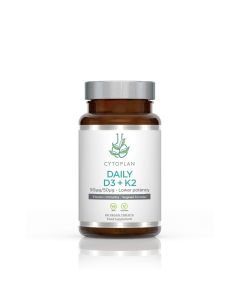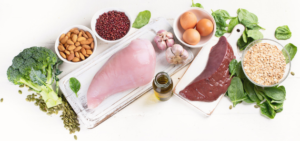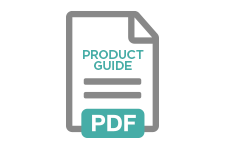Zinc is the second most abundant trace mineral in the body, however it can't be produced or stored by the body. Zinc deficiency is common in modern-day diets, with soil exhaustion and the processing of food also adversely affecting the zinc value of the food we eat. Zinc can be found in a variety of foods including seafood, red meat, chicken, fish, pumpkin and squash seeds, nuts, brewer's yeast and wholegrains, however if you feel you are not getting enough from your diet, a zinc supplement could help safeguard your intake.
Within our zinc supplement range we provide Zinc & Copper, Wholefood Zinc, and Zinc Citrate (15mg and 30mg). Our Food State Zinc & Copper supplement combines these two important minerals to help prevent a possible risk of copper deficiency if zinc tablets are being taken long-term. Zinc and copper compete for the same absorption sites, and an excess of zinc can cause a copper deficiency. Our Wholefood Zinc capsules are made from minerals that have been hydroponically grown into Brassica juncea, a cruciferous vegetable similar to broccoli. Food State and Wholefood forms of zinc are used by the body in the same way as food nutrients. Zinc Citrate is a non-food form of zinc which is readily absorbed into the bloodstream.
All our zinc supplements are suitable for vegetarians and vegans, and are free from wheat, GMOs, artificial flavourings and colourings.
What is zinc?
Zinc is an essential trace mineral which cannot be produced or stored by the body. Nevertheless, it's essential for many bodily functions and must therefore be consumed through the food we eat. Zinc can be found in a variety of foods including seafood, red meat, chicken, fish, pumpkin and squash seeds, nuts, brewer's yeast and wholegrains, however zinc deficiency is still fairly common in modern-day diets. Soil exhaustion and the processing of food can also adversely affect the zinc content of the food we eat.
Zinc is required to support a variety of functions within the body including supporting the function of the immune system, cognitive function, fertility and reproduction, and the maintenance of healthy bones, hair, skin and nails to list just a few!
What does zinc do?
Zinc supports a variety of functions within the body and has been shown to contribute to:
- the normal function of the immune system
- the maintenance of normal bone, hair, skin and nails
- the maintenance of normal vision
- the protection of cells from oxidative stress
- normal fertility and reproduction
- normal cognitive function
- normal DNA synthesis
- the maintenance of normal testosterone levels in the blood
- the process of cell division
- normal protein synthesis
- the normal metabolism of fatty acids and vitamin A
- normal acid-base metabolism, macronutrient metabolism and carbohydrate metabolism
How much zinc is required per day?
What are the benefits of zinc for men?
What is the best zinc supplement?
Zinc supplements are available in a variety of different forms. Here is a little more guidance on how you might choose between the zinc supplements within our range:
- Food State Zinc & Copper is suitable for long-term use in order to help prevent copper deficiency. It can be taken with or without a multivitamin and mineral supplement alongside it
- Some forms of zinc can cause nausea when taken on an empty stomach - our Wholefood Zinc does not cause nausea, although it is best taken with food. This product is also suitable for long-term use and can be used alongside a multivitamin and mineral supplement
- Zinc Citrate 30mg is a high strength supplement suitable for short-to-medium-term use to increase levels of zinc. It is provided in a highly absorbable citrate form
- Zinc Citrate 15mg can be used to maintain zinc levels and is provided in a highly absorbable citrate form. If taking longer term, consideration should also be given to copper intake
Food State and Wholefood forms of nutrients are used by the body in the same way as food nutrients. They are gentle on the body making them particularly suitable for individuals who are unwell or who have sensitivities. You can learn more about the Wholefood and Food State process here.










